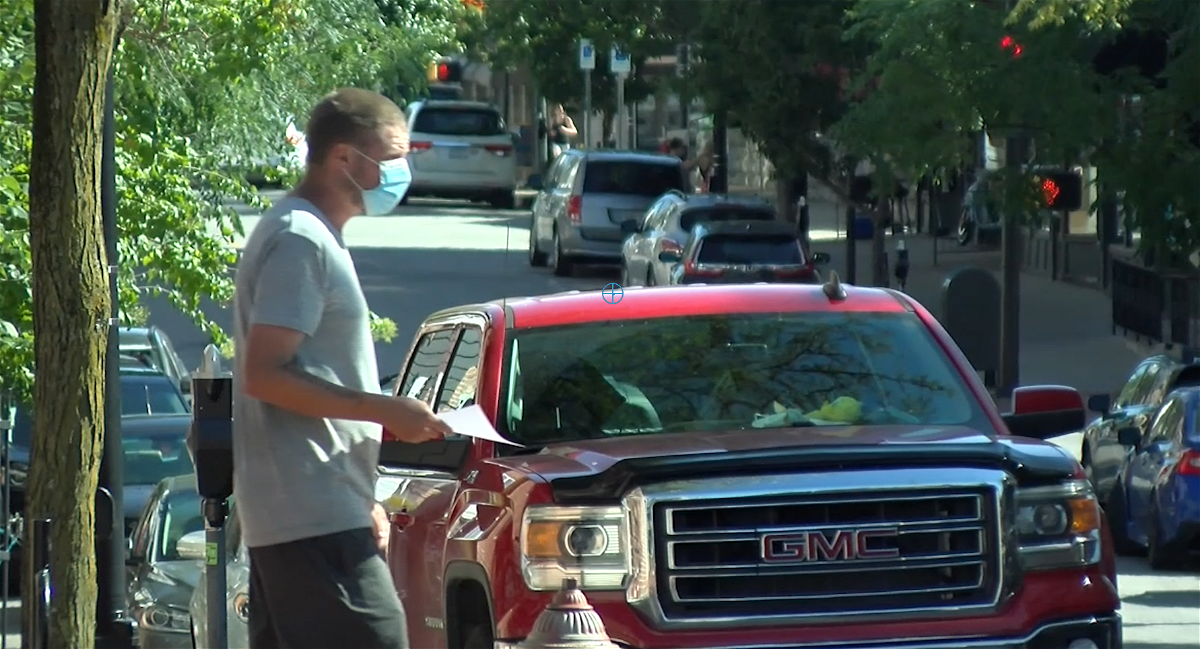COVID-19 rate soars as new health orders created for Columbia, Boone County

COLUMBIA, Mo. (KMIZ)
Nearly half the people tested for novel coronavirus over the past week have been positive for the virus, the Boone County health director said Friday when announcing new orders that will close businesses that serve alcohol by the drink at 10 p.m.
The positivity rate -- a measure of the number of people tested for COVID-19 in the last seven days who receive a positive result -- was 44.6 percent, Columbia/Boone County Department of Public Health and Human Services Director Stephanie Browning said Friday.
Browning appeared with Boone County Presiding Commissioner Dan Atwill and University of Missouri President Mun Choi on Friday morning at Columbia City Hall to unveil the new COVID-19 health order.
The order will go into effect at noon and is set to expire Sept. 17.
Browning painted a dire picture of the state of the pandemic in Boone County. She said the county has seen a 220 percent increase in the virus in the 18-22-year-old population, which includes many of the area's college students. The county is also four to five days behind in contact tracing to identify people who have been in contact with infected people, Browning said.
Watch playback of the news conference in the player below.
The positivity rate indicates "widespread community transmission," Browning said.
"I didn't expect this rise this fast," Browning said.
Browning said 68 new cases have come in since the county announced 83 new cases Thursday. The daily record is 87.
Cases are also increasing in the K-12 population and in middle-age adults, she said.
Browning said health officials have seen a "clear connection" between people not following regulations such as social distancing and wearing masks and cases going up.
The new order includes a provision that bars and restaurants that sell alcohol should stop selling alcohol at 9 p.m. and close at 10 p.m. each night. The order says those businesses can sell only food via curbside pickup or delivery after 10 p.m.
Dance floors will be closed under the new order. The order also limits entertainment venues to 100 people or fewer, and only if the venue has an operational plan submitted to the local health department.
The order says all food and drinks must be consumed while seated, as well.
Public and private gatherings will also be limited under the new order to 20 people. The number is in line with University of Missouri rules announced this semester that limit events to 20 people.
Large gatherings at businesses or events held at businesses or institutions open to the public are limited to 50 percent occupancy or 100 people, whichever is less. That includes gatherings at conference centers, hotels and churches.
Masks will still be required in Columbia under city ordinance and the city's health order. However, their use is "strongly encouraged" in the county under the new order. The order also strongly encourages businesses to operate at a capacity less than what is allowed.
"Businesses are also encouraged to provide services remotely or in a manner maximizing social distancing such as curbside, pickup, delivery, etc.," the department said in a news release.
Atwill stressed that the rules in the new order are not politically motivated but informed by science. He said the rules are the best way to counter the spread of COVID-19.
"We will prevail in overcoming this challenge by keeping our distance and wearing our masks," Atwill said.
Choi said there have been about 300 cases identified on campus. He compared MU's response to that of the University of North Carolina in Chapel Hill, which switched to online classes soon after the semester began because of the pandemic.
The area where UNC is located has seen 50 deaths, whereas Boone County has recorded fewer than 10, he said. Columbia also has more hospital capacity, Choi said.
None of the infected MU students have been hospitalized, Choi said.
When asked what would trigger a move to online classes at MU, Choi said university leaders are "not just looking at one number" to make that decision.
Browning said younger people infected with COVID-19 have recovered more quickly for the most part, but not all of them. Some come down with severe symptoms, she said, and all of them have the ability to spread coronavirus to people who are more vulnerable.
Check back for more on this developing story or watch ABC 17 News at 5 and 6.
